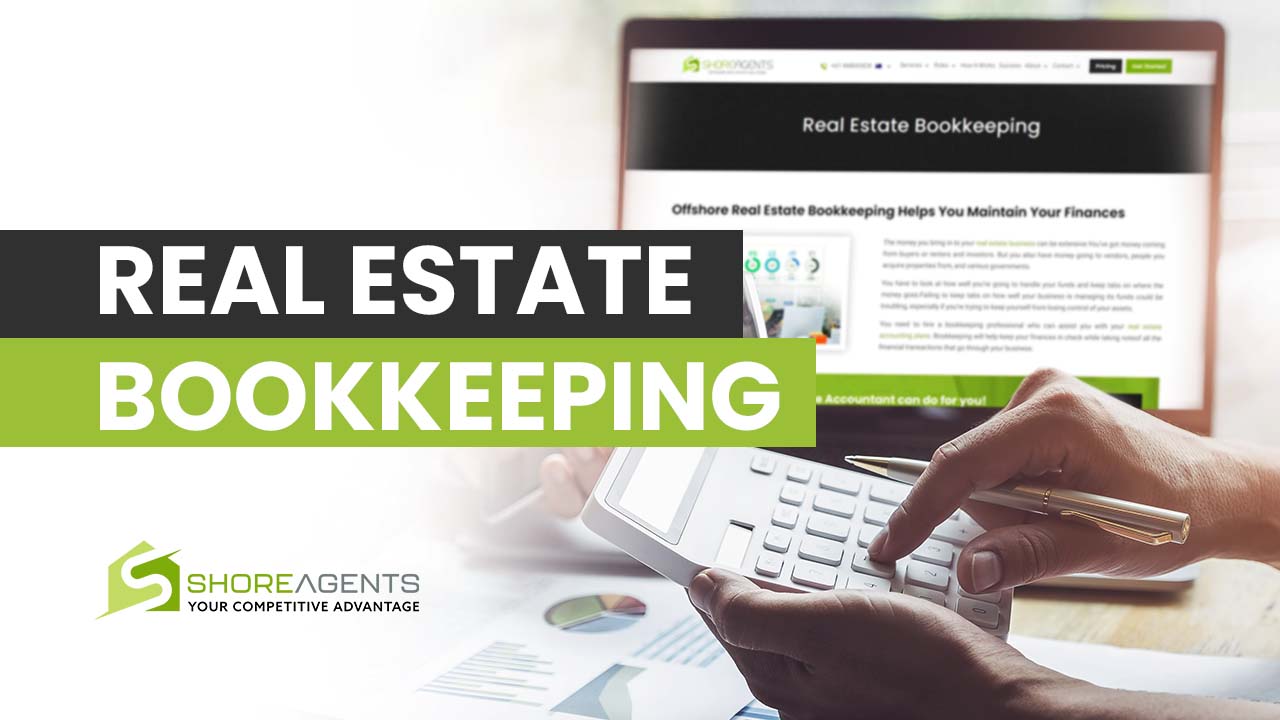
In the fast-paced world of real estate , managing finances can often feel like a daunting task. From tracking commissions to handling expenses , real estate agents have a lot on their plate. That’s where bookkeeping software comes in , offering a streamlined solution for managing finances and staying organized. But with so many options available , how do you select the right one for your needs? This thorough guide will walk you through everything you need to know about bookkeeping software for real estate agents , from essential attributes to top recommendations.
Before diving in , it’s crucial to understand the landscape of real estate. For instance , understanding who owns Mark Spain Real Estate or the intricacies of rowles real estate can offer valuable context. Similarly , knowing the basics of accounting software for real estate investors can help you appreciate the nuances of bookkeeping for agents.
Why Bookkeeping Software is a Must-Have for Real Estate Agents
Real estate agents juggle a lot. From showing properties to negotiating deals , their days are packed. Amidst all this , financial management can often take a backseat. That’s where bookkeeping software comes in , acting as a financial command center. It helps track income and expenses , manage client payments , and generate reports for tax season. Think of it as your personal financial assistant , available 24/7.
For those wondering about selling , having your finances in order is crucial. It allows you to demonstrate your business’s financial health , which is essential when you decide to engage a real estate agent to sell my house. Good bookkeeping practices also help in understanding your profitability and determineing areas for improvement.
Related Post : mark spain real estate raleigh
Moreover , in the world of real estate , errors can be costly. While bookkeeping software doesn’t replace real estate errors & omissions insurance , it significantly reduces the risk of financial errors by automating calculations and providing accurate records. This is especially crucial for maintaining compliance and avoiding potential legal issues.
Key attributes to Look for in Bookkeeping Software
Not all bookkeeping software is created equal. When choosing a solution , consider these essential attributes:
- Income and Expense Tracking: The ability to accurately record all income and expenses is fundamental. Look for software that allows you to categorize transactions and attach receipts for easy reference.
- Bank Reconciliation: This attribute ensures that your bank statements match your records , helping you determine discrepancies and prevent fraud.
- Invoice Management: Create and send professional invoices to clients , track payments , and automate reminders for overdue invoices.
- Reporting: Generate financial reports such as profit and loss statements , balance sheets , and cash flow statements to gain insights into your business’s performance.
- Tax Preparation: Simplify tax season by generating reports that summarize your income and expenses , making it easier to file your taxes accurately and on time.
- Integration: Ensure the software integrates with other tools you use , such as your real estate crm and lead generation platform , to streamline your workflow.
Top Bookkeeping Software Options for Real Estate Agents
Several bookkeeping software options cater specifically to the needs of real estate agents. Here are a few popular choices:
- QuickBooks Self-Employed: A popular choice for complimentarylancers and independent contractors , QuickBooks Self-Employed offers attributes like income and expense tracking , mileage tracking , and estimated tax calculations.
- Xero: Known for its user-friendly interface and robust attributes , Xero is a great option for real estate agents who want a thorough bookkeeping solution.
- FreshBooks: Designed for service-based businesses , FreshBooks offers attributes like invoice management , time tracking , and project management.
- Zoho Books: A cloud-based accounting solution that offers a scope of attributes , including invoicing , expense tracking , and inventory management.
When evaluating these options , consider factors like pricing , attributes , ease of use , and customer support. Many software offerrs offer complimentary trials , so you can test out varied solutions before making a decision.
Integrating Bookkeeping Software with Your Real Estate Business
Once you’ve chosen a bookkeeping software , it’s time to integrate it into your real estate business. Here are a few tips to get started:
- Set up your accounts: Create accounts for all your income and expense categories , such as commissions , industrying expenses , and office supplies.
- Connect your bank accounts: Link your bank accounts and credit cards to the software to automatically import transactions.
- Categorize your transactions: Regularly categorize your transactions to ensure accurate financial reporting.
- Reconcile your accounts: Reconcile your bank accounts monthly to determine discrepancies and prevent fraud.
- Generate reports: Regularly generate financial reports to monitor your business’s performance and determine areas for improvement.
By following these steps , you can seamlessly integrate bookkeeping software into your real estate business and streamline your financial management. For those involved in property management , consider how the software integrates with online real estate management software to ensure smooth operations.
The Future of Bookkeeping for Real Estate: Automation and AI
The future of bookkeeping for real estate is likely to be shaped by automation and artificial intelligence (AI). AI-powered bookkeeping software can automate tasks like data entry , transaction categorization , and reconciliation , complimentarying up real estate agents to focus on more strategic activities. Imagine a system that automatically learns your spending habits and categorizes transactions with minimal input from you. This is the power of AI in bookkeeping.
Furthermore , AI can offer valuable insights into your business’s financial performance , determineing trends and patterns that you might otherwise miss. This can help you make more informed decisions about pricing , industrying , and investments. As technology continues to evolve , bookkeeping software will become even more sophisticated , offering real estate agents a powerful tool for managing their finances and growing their businesses. This also ties into the skills needed for real estate , as financial literacy becomes increasingly crucial.
In conclusion , choosing the right bookkeeping software is a game-changer for real estate agents. It not only simplifies financial management but also offers valuable insights for making informed business decisions. By carefully evaluating your needs and exploring the options available , you can find a solution that streamlines your operations and sets you up for long-term achievement. Remember to consider factors like integration with other tools , ease of use , and scalability as your business grows. With the right bookkeeping software in place , you can focus on what you do optimal: helping clients achieve their real estate dreams.










